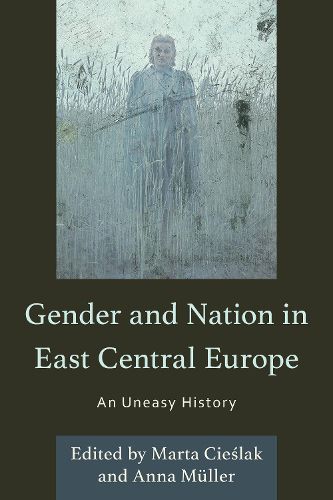Readings Newsletter
Become a Readings Member to make your shopping experience even easier.
Sign in or sign up for free!
You’re not far away from qualifying for FREE standard shipping within Australia
You’ve qualified for FREE standard shipping within Australia
The cart is loading…






Gender and Nation in East Central Europe: An Uneasy History offers an interdisciplinary analysis of the tumultuous relationships between gender and national identities in the region where both gender and nation as analytical categories have long been contested. Focusing on the nineteenth and the first decades of the twentieth centuries, eleven authors examine gender and its stubborn, inescapable, and multifaceted ties to how nations and national identities have been envisioned, invented, described, constructed, and legislated during the formative period of East Central European nation-building. The volume presents case studies that uncover the historical East Central Europe of messy, fluid, and complex identities that evolved at the same time as East Central European nationalists were attempting to draw clear borders between what they understood as nationalities. Drawing from the multitude of archives and using the lenses of such disciplines as history, art history, literary studies, and sociology, the authors demonstrate how both individuals and collectives produced national identities while simultaneously producing gender identities. Correspondingly, they show how individuals and collectives imagined, fashioned, and performed national and gender identities in response to the historical forces that affected the process of identity formation around them.
$9.00 standard shipping within Australia
FREE standard shipping within Australia for orders over $100.00
Express & International shipping calculated at checkout
Gender and Nation in East Central Europe: An Uneasy History offers an interdisciplinary analysis of the tumultuous relationships between gender and national identities in the region where both gender and nation as analytical categories have long been contested. Focusing on the nineteenth and the first decades of the twentieth centuries, eleven authors examine gender and its stubborn, inescapable, and multifaceted ties to how nations and national identities have been envisioned, invented, described, constructed, and legislated during the formative period of East Central European nation-building. The volume presents case studies that uncover the historical East Central Europe of messy, fluid, and complex identities that evolved at the same time as East Central European nationalists were attempting to draw clear borders between what they understood as nationalities. Drawing from the multitude of archives and using the lenses of such disciplines as history, art history, literary studies, and sociology, the authors demonstrate how both individuals and collectives produced national identities while simultaneously producing gender identities. Correspondingly, they show how individuals and collectives imagined, fashioned, and performed national and gender identities in response to the historical forces that affected the process of identity formation around them.